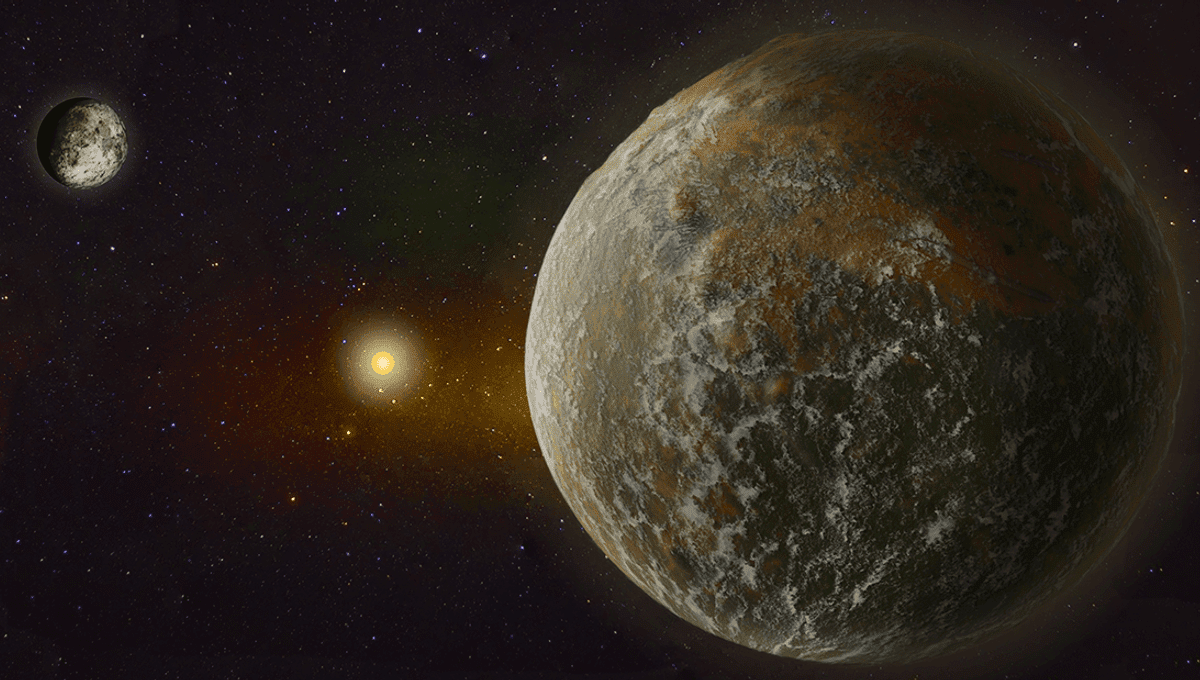
What with all that’s going on [gestures generally at the world] you probably have enough to worry about, but a new experiment has looked at the catastrophic effect a hypothetical planet would have on the solar system and Earth.
In our solar system, there is a big gap in size between terrestrial planets (rocky worlds, like Earth and Mars) and the smallest of the ice giants, Neptune. This isn’t the case in other solar systems, where super-Earths – a class of planets that are more massive than Earth but smaller than Neptune – are abundant. In fact, by some estimates, they are the most common type of exoplanet in our galaxy.
University of California Riverside astrophysicist Stephen Kane wanted to study the effect that a super-Earth would have on our own solar system, placed in the large gap between Mars and Jupiter. Kane ran computer simulations of this scenario, varying the mass and location of the hypothetical planet.
In short, he found that if our own solar system were to have a super-Earth, we might not be around to remark on how cool it is.
“This fictional planet gives a nudge to Jupiter that is just enough to destabilize everything else,” Kane said in a press release. “Despite many astronomers having wished for this extra planet, it’s a good thing we don’t have it.”
In the study, Kane explains that the nudge of gravity exerted on Jupiter results in several planets facing the business end of a yeeting.
“Although Jupiter and Saturn experience relatively small orbital perturbations,” Kane writes in the study, “the angular momentum transferred to the ice giants can result in their ejection from the system at key resonance locations of the additional planet.”
While not having the name Uranus to giggle at would be disappointing, don’t think Earth is getting away unharmed. In some simulations, one where the super-Earth was seven times the mass of the Earth, the Earth gets thrown out of the solar system too. In that simulation, Mars takes an early exit around halfway through the 10 million year run.
“Mercury is also ejected relatively early in response to interactions with Venus and Earth, whose eccentricities gradually increase and deposit angular momentum into Mercury’s orbit,” Kane wrote. Gradually, the orbits of Venus and Earth become more eccentric, “leading to catastrophic close encounters” between the planets.
“Consequently, both Venus and Earth are removed from the system during the time period 8–9 [million years] after the commencement of the simulation.”
Kane explains that our gas giants, possibly migrating through the solar system, may have influenced the formation of our rocky inner planets, preventing super-Earths from forming. While lamenting that this means we don’t have a handy super-Earth to study and help us learn about exoplanet super-Earths, he notes that his “work presents a positive aspect of the lack of a local super-Earth, in demonstrating the potential for orbital instability that such an additional planetary mass may induce.”
In terms of the search for exoplanets and alien life, the study may be a mixed bag of good and bad news. The good news is that it showed the stabilizing effect of gas giants like Jupiter can have on the orbits of rocky planets and super-Earths. The bad news is that gas giants make up around 10 percent of the exoplanets we’ve found so far.
“Our solar system is more finely tuned than I appreciated before,” Kane added in the press release. “It all works like intricate clock gears. Throw more gears into the mix and it all breaks.”
The study is published in The Planetary Science Journal.
Source Link: The Hypothetical Planet An Astrophysicist Found Could Wipe Out Life On Earth